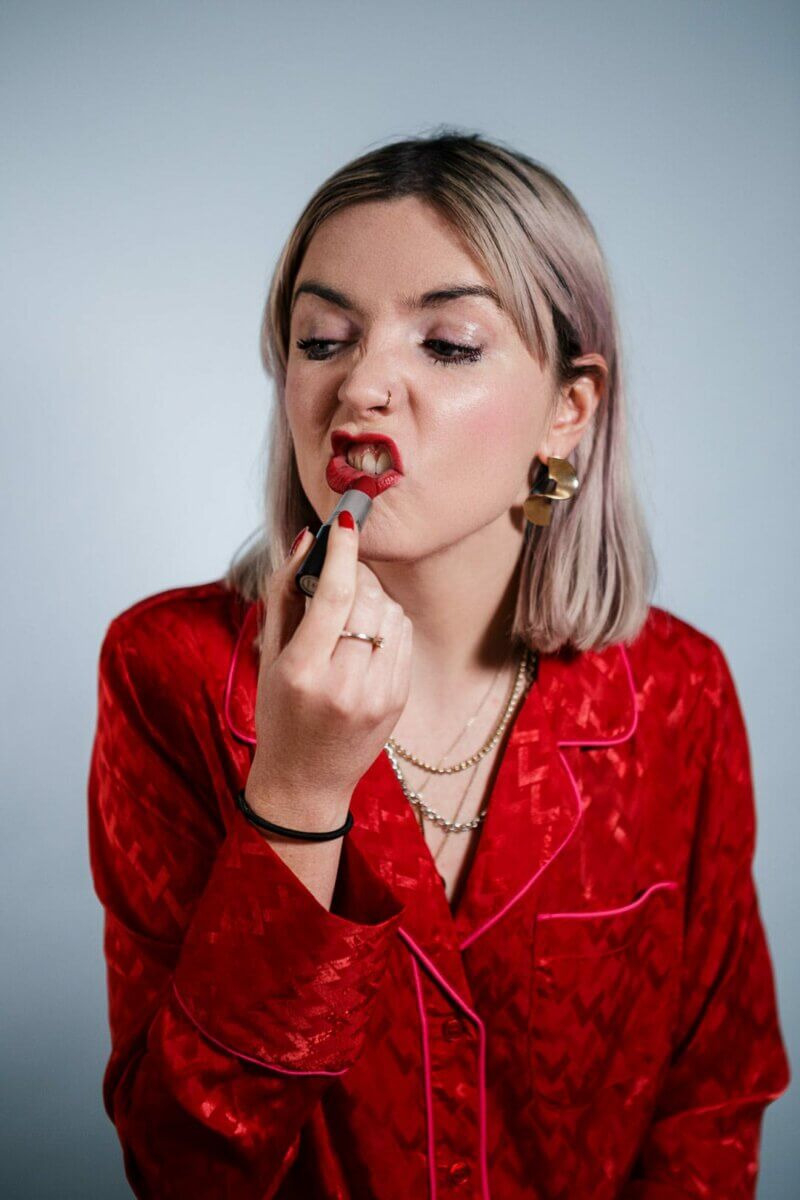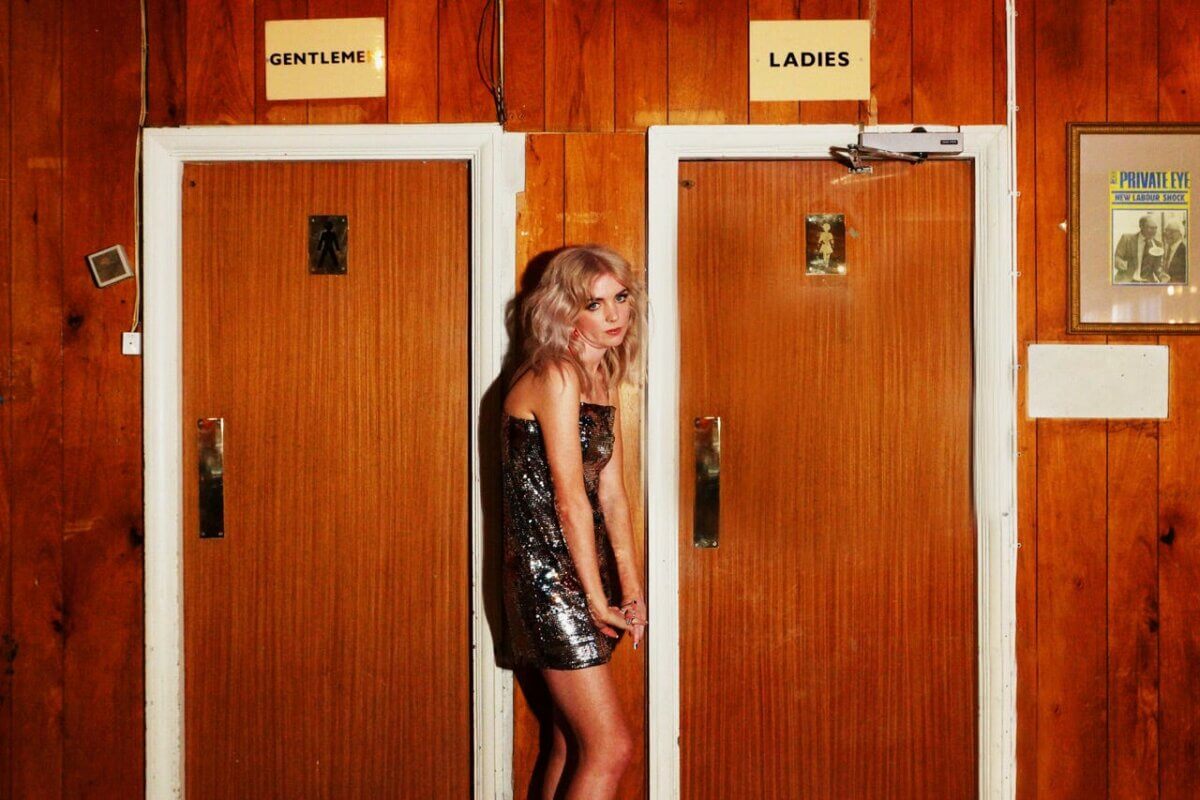What’s Your Problem? is a podcast recorded at the Big Belly Comedy Club, where we try to figure out what’s wrong with comedians that makes them want to tell jokes on stage.
Alex Haddow is a London based comedian, writer, and host of the Indie Amnesty night. She will be touring her show, Not My Finest Hour, around the UK in 2024. Interview by Lance Carter.
My problem is that I was bored, very bored. I actually did my first ever gig about nine years ago when I was about 26. I was basically still waiting for the big, huge, exciting thing to happen in my life. I was working in magazines and stuff, which up until that point was my dream. I wasn’t writing part of the magazine, but I quite enjoyed it. And I think that’s why I had a go at standup aged 26. I was really nervous. I nearly didn’t do it, and my dad said “Look, if things don’t change, they’ll stay the same” which sounds like a really obvious thing to say, but it really stuck in my head.
It was Comedy Virgins at the Cavendish Arms, and I went back the following week to do another one, but I couldn’t find a bringer and I didn’t have the nerve to try to sneak in without one, so I ended up just going back home.
Then I didn’t do it again for a while, but I inherited some money and went on a three or four month backpacking trip because I was so bored of my job. And it was while I was away that I realised I really needed to give standup a real go.

I was always the funny one in the office, always dicking around at work. When I left, my boss told me I was the person she’d miss working with the most, but also the person she most wanted to punch in the face.
For a while I was doing something that I see a lot of beginners doing now, and that was dancing around standup but not really doing standup. For example, I had a weekly newsletter called “Women Aren’t Funny” where I was writing funny stuff – it wasn’t very but, but it was just nice. Then I did an improv workshop, and I was just constantly dancing around standup. So I wrote in my diary that I should try to do three gigs a month, and I just thought it would be a nice thing to do to distract me from the nine-to-five. I think the nine-to-five was my real problem.
I wrote it out word for word, because I couldn’t imagine going off piste. I think women plan more for their first gigs, but men will just have a go. That’s not a criticism, I wish I had been more like that in a way. If a man’s not funny people just go “oh he’s not funny” but if a woman’s not funny somebody will always say “I knew women weren’t funny.” It can be like you’re representing your whole gender when you go up there.
At that point I just saw it as a distraction from the nine-to-five, I never thought it could be a job, I just thought it would be something fun.
 When did that feeling change?
When did that feeling change?Genuinely, I didn’t think I’d earn a living at it until maybe until I accidentally did start earning a living at it. I think at the start of 2022 I realised I didn’t have any other freelance work but I was OK financially, and I thought oh god I guess I’m a professional comedian now. It was more like a realisation rather than a goal I was aiming to hit by a specific date.
I don’t think there was an actual tipping point. It happens so slowly that you don’t really notice. My advice for beginners is to befriend somebody who runs a bringer night very early on. I used to do Bignose Comedy at the Boogaloo every single week because I knew the promoter and he would just let me on without a bringer, which made a massive difference.
Also my mate was running a pub in Islington quite early on as well and she offered me £150 to run a mic, so I would pay five people £20 and I would take £50. So quite early on I thought “this is amazing, I’m getting paid to do this.”
I ran some nights with my friends Jamie [Allerton] and Hubery [Mayr] called “What’s The Deal” – it was wildly chaotic. Sometimes the chaos was good, but sometimes it was like “oh god we haven’t sold any tickets.”
Exactly. If you’re good at running a night or putting a gig on, or even if you’re not, you’re going to have to learn somewhere. It just gives you your own gig and you’re going to get stage time.
Try to find a venue or a place where you can run gigs, ask around, if any of your friends know somebody who runs a pub or something.
We ran a gig in a really nice hotel near my house every Sunday. They paid us a nice amount of money for it but it was not a room for comedy at all. We had people like Ivo Graham coming down, and there was a bar making cocktails in the middle of the room while they were performing. But the headline is, we were getting an alright fee for a Sunday and a free hotel room.
 Is there anything you wish you did differently in those early days?
Is there anything you wish you did differently in those early days?I don’t know, probably if I looked back at my old tapes. But what I’d tell people now is try to get into a regular writing routine right from the start and just do every gig you possibly can.
My friend James, who was a standup but is mostly a writer now, said to me “Do 100 gigs and then see if you like it.” Because it takes about 100 gigs before you can relax a bit on stage. People want to fast-track themselves, but you really can’t, you just need to be good on stage.
No, I want to be but I never do it. That’s sort of why I did my debut show at Edinburgh, because I knew it would make me write something. But my day-to-day thing is just writing something down and trying it out on stage, and then kind of putting it together. I’m planning to start a regular writing workshop for standups, where once a month we just try stuff out on eachother.
This is going to sound like I’m complaining that my diamond shoes are too tight, but when you’re getting better gigs you panic at the thought of trying something new at them. Whereas when you’re doing open mics all the time I was trying so much new stuff. But now, people have paid to see me and this might be their big night out for the month, so I’m just going to do the stuff that I know works.
You really have to challenge yourself to sneakily put a new bit in, because otherwise you’ll never do it. So I’m trying to put things in place to write in a more disciplined way.
My style of standup is a style that I can’t really do, I think. I love slightly off the wall people like Bill Bailey, Dylan Moran, David O’Doherty, and that’s why I didn’t try standup for ages because I think all of that stuff is amazing and there was no way I could do it.
I just write, and it’s always true – I find it difficult to make something up. Obviously I exaggerate and build a bit out, but I’ve never made anything up myself. People can always tell if you’re making it up.
Bookings for our Bar on the Southbank, SE1 Baby